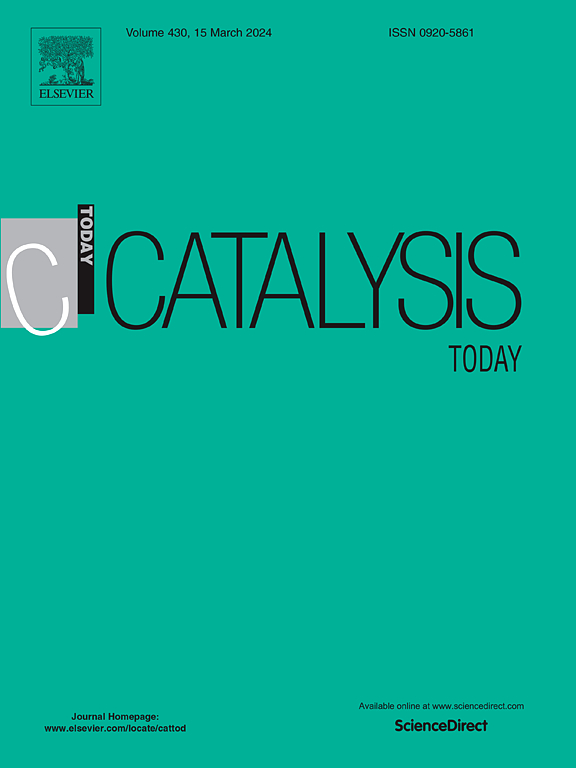Effect of the reorganization of acid sites induced by metal species on TiO2 supports on the conversion of furfural to acetals and ethers
Abstract
For the catalytic hydrogenation of furfural (FFR) over supported metal catalysts, acetals and ethers were often observed as by-products when alcohols were used as solvents. The presence of specific acid sites on the catalyst led to the conversion of FFR to acetals and ethers. To understand the effect of the interaction between metal species and oxide supports on the acid properties of catalysts and the conversion of FFR to acetals and ethers, anatase TiO2 (TiO2-A), rutile TiO2 (TiO2-R) and these TiO2 supported Ni catalysts were studied as models. The relationship between the acid properties of these samples and FFR conversion pathways in isopropanol was revealed. The interaction between Ni species and TiO2 supports was found to selectively remove Brønsted acid sites on the TiO2 supports in the absence of H2, thereby inhibiting the conversion of FFR to acetals and ethers in N2. However, the presence of high-pressure H2 during the reaction induced the formation of new Brønsted acid sites on Ni/TiO2 catalysts via hydrogen spillover, promoting the acetalization of FFR to acetals and the hydrogenolysis of acetals to ethers. The Ni/TiO2-A catalyst exhibited higher activity in catalyzing the conversion of FFR to acetals and ethers compared to the Ni/TiO2-R catalyst. This work provides reference information for the selective regulation of acid-catalyzed reaction pathways of FFR in alcohols.

| 公司名称 | 产品信息 | 采购帮参考价格 |
|---|
 求助内容:
求助内容: 应助结果提醒方式:
应助结果提醒方式:


